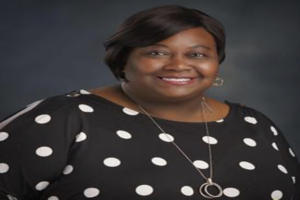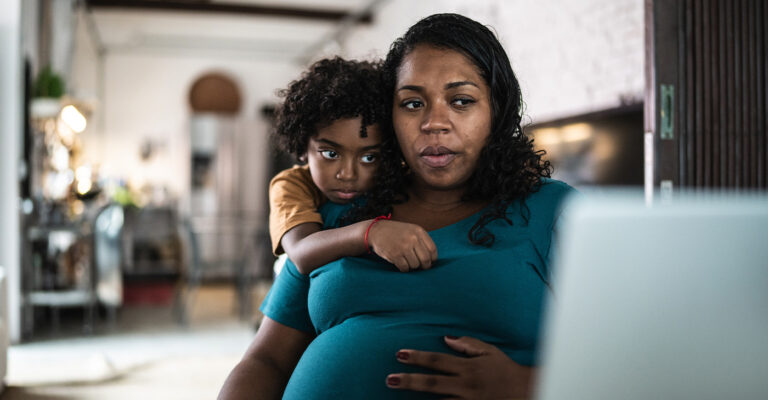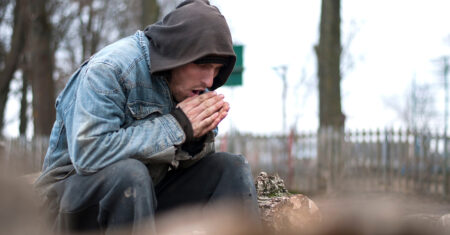By Barrington M. Salmon | NNPA Newswire
The National Center for Health Statistics released data several months ago showing that maternal deaths in the United States spiraled to the highest rate in almost nearly 60 years, data showed, worsening a health trend that has cemented America as one of the most dangerous industrialized countries for a woman to give birth.
“The United States bears the worrying distinction as “deadliest nation” in the industrialized or “developed world” to be pregnant,” said Dr. Michele Bratcher Goodwin in testimony before the Senate Judiciary Committee in June 2023. “Nationwide, as noted by Justice Breyer, “childbirth is 14 times more likely than abortion to result in death.” As reported by Nina Martin and Renee Montagne, “[m]ore American women are dying of pregnancy-related complications than any other developed country.” In fact, “[o]nly in the U.S. has the rate of women who die been rising.”
In fact, said Bratcher, an author, advocate and Abraham Pinanski, Visiting Professor of Law at Harvard Law School, “a review of data collected by the United States Central Intelligence Agency provides evidence that it is safer to be pregnant and give birth in Iran, Tajikistan, and Bahrain than in the United States … In Mississippi, a woman is 118 times more likely to die by carrying a pregnancy to term than by having an abortion. According to the Mississippi Maternal Mortality Report, Black women accounted for “nearly 80% of pregnancy-related cardiac deaths” in that state.”
For Black women, the dangers they face while pregnant are dire. According to the Centers for Disease Control and Prevention, in 2021, the maternal mortality rates for Black women were significantly higher than the rates for White and Hispanic women. Stats show that Black women are three times more likely to die from pregnancy-related complications than white women in America.
Suzanne Wertman, state government affairs consultant with the American College of Nurse Midwives, said she’s not at all surprised at the troubling increase in the rate and numbers but said there’s one aspect that really leaves her aghast.
“What surprises me is that there’s not enough political will and that this is not at a tipping point,” said Wertman, a vocal advocate for midwifery, reproductive health and a woman’s right to control her bodily autonomy. “The conversation still centers around older mothers and obesity. They always focus on the woman and not the system. What’s interesting to me as a midwife is that the mainstream media talks to physicians, not midwives.”
Any attempt to substantially reduce maternal mortality generally, and Black maternal mortality in particular, has to confront and shatter the scourges of structural and institutional racism and sexism, Wertman said.
“We need to have universal pregnancy care,” said Wertman. “We need serious investment in maternal health, universal care and more midwives. What we have is ‘too little too late’ and ‘two much too soon.’”
Wertman – who has more than 20 years’ experience providing midwifery care to a range of people in public, private and non-profit spaces – said COVID-19 hurdled everyone into crisis mode and added another layer of stress on an already stressful situation for organized medicine and organizations, hospitals and health groups. Other experts and observers note that COVID-19 exposed the structural inequities in the healthcare industry and other segments of the American economy.
Dr. Kevin Scott Smith, Department Chair of Obstetrics and Gynecology at the Alameda Health System, is engaged in the same battle Wertzman is from a different angle and place. He, like Wertzman, sees racism and race-based health disparities as key factors driving the Black maternal mortality crisis in the United States.
“It’s a bigger challenge than just COVID. COVID is a variable, and racism is a variable to COVID. There are some interrelated links between both,” said Smith. “What I will tell you is I am spending most of my time fighting obstetric racism. I am hopeful that these efforts will have some impacts. Rather than expecting outcomes, I am concerned about data.”
“Obstetric racism represents the cause for the racial disparities in Black maternal health. It has been declared by most medical bodies. It’s not one race driving these racial disparities. It’s more systemic for sure.”
Smith said he believes that if you remove all of the previously attributable causes for Black maternal mortality such as access to care, lack of education and poverty … you’re left with one root cause and that’s racism.
It’s tragic, it’s tragic,” said Smith, sighing deeply.
Often, when people look at numbers, it’s easy to forget that each data point represents a woman, flesh and blood, a human being. Kendra Davenport Cotton is the face behind those numbers, a woman and mother who but for the grace of God would have become a statistic.
“I’m talking as a person who has had scares,” said Cotton, chief executive officer for the New Georgia Project and New Georgia Project Action Fund. “I have children who are 21, 18 and 15. When they were younger, I had a pregnancy that was not viable. I went to my OB-GYN’s office and literally almost hemorrhaged to death. I started bleeding. It looked like a murder occurred.
Cotton said her doctor told her he couldn’t do a D&C.
“I was in Durham, North Carolina. I’m educated with an advanced degree. I had a blighted ovum. I was at eight weeks when I found out,” said Cotton, who said her children were 7, 4 and a year old when she experienced this health crisis. “I ended up having a medical abortion and a D&C. I wouldn’t have been able to do that under current circumstances. If I was in rural area, I’d be dead.”
Cotton said when the US Supreme Court overturned Roe v. Wade last June, Georgia’s Republican lawmakers quickly reinstated the Peach State’s six-week abortion ban.
“Most women don’t even know they’re pregnant at six weeks. The 6-week ban has calcified things and is causing all types of health problems,” she said. “Women in similar circumstances now would have to go before a board which would convene to ensure appropriate safeguards for hospitals and doctors.”
“Women would be sent home with non-viable pregnancies.”
Cotton said priority choices, underfunding and disinvestment by Georgia’s elected officials are crippling women’s effort to have access to reproductive care.
“There’s underfunding here in Georgia. There are lots of rural hospital closures which are negatively affecting Black maternity health,” said Cotton, who served as the campaign manager for Teresa Tomlinson in her US Senate race and was founding executive director of Rep GA Institute, Inc. “It’s happening in places where schisms of haves and have-nots is particularly acute.”
Cotton said some people have to drive 70 to 100 miles to get to an OB-GYN. She said Georgia has been hit hard, citing the fact that Georgia government officials implemented Medicare after decade.
“This is top neglect of the governor and the legislature. Show me your budget, I’ll show you priorities,” she said. “Black women are underpaid and they’re living in areas under-represented and the government underfunds the basis infrastructure.”
These actions have been deeply challenging and perplexing for those people public officials purport to represent.
“We’re in a conundrum right now because public policy in Southern states is hard. There are systemic forces in place designed to oppress people in the margins,” said Cotton.
She said less than half of Georgia’s 159 counties has an OB-GYN, one of Atlanta’s two trauma hospitals have closed and grassroots organizations were not notified. She said residents and activists have been fighting back by taking to the streets but acknowledged that it’s been an uphill battle.
“You can treat healthcare like we treat retail. Throwing up urgent care will not do much. You’re playing with people’s lives,” Cotton said. “(What they’re doing) may be deliberate but regular folks and poor folks will and are suffering.”
Smith, who stood up a care modeling program called Beloved Births Black Centering, said in his role as chairman of midwifery, he doesn’t rely on magic.
“Actual measurements are moved to that end,” he said. “This particular model capitalizes on the centering of the prenatal care model, pre-birth weight, group prenatal care for and by Black people. We have Black midwives, doulas, caseworkers and Black physical fitness trainers. We provide wraparound care – a gold package of Black love.”
Smith serves on the advisory board of the African American Well Project, an organization led by Dr. Mike LeNoir whose goal is to create health equity in America’s healthcare ecosystem. He said he and his team were able to kick off Beloved Blacks Birthing Center during the COVID-19 global pandemic. He describes the program as a safety net providing care to Black, brown and other women.
“We’re seeing evidence of the program’s success. It is evidence-based care. It potentially could be the opt-out model while we address obstetric racism,” he said.
Wertzman said there are several solutions to this crisis.
“Policymakers understand that so many issues we face could be solved by investing in reproductive justice,” she said. “Women should be allowed to have babies if they want to.”
She said government officials, policymakers and others should also invest in midwifery by removing regulatory restrictions and other disincentives such as midwives being paid less for the same services.
“They need to reimburse equity – equal pay for equal work. It’s crazy how little is spent on births. Preventative consequences could be changed ensuring that people get care when and how they need it,” she said.
Wertzman said some other solutions are creating free-standing birth centers that offer pre-natal and natal care; integrating midwives more fully into the healthcare system to ensure a higher level of care; redistributing funds; and spending more money on those on the frontlines.”
The post The National Disgrace of Maternal Mortality first appeared on BlackPressUSA.







